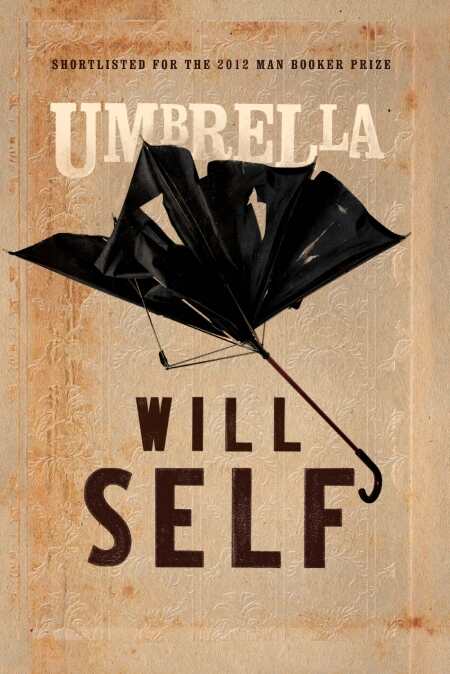Umbrella
Since umbrellas normally are not difficult to operate, they seldom come with instruction booklets. This Umbrella, however, could well use a warning: Notice—what follows is not your usual novel. There are 448 pages with no chapter breaks or headings. There are few paragraphs, no quotation marks around dialogue, and sentences that tend to run into other sentences. Points of view shift from one character to another, seamlessly. Time shifts, repeatedly. Bits of song lyrics intermingle with dialogue and narrative, frequently.
Will Self’s creation, Zachary Busner, a psychiatrist in a mental hospital in London in the 1970s, discovers a number of patients who have resided there for a long time. His diagnosis is that they are suffering from the remnants of encephalitis lethargica, a disease that leaves the patient comatose or enshrouded in persistent, indecipherable tics or repetitive motions. Busner begins treating the people with L-DOPA, and they respond, especially his favorite patient, Audrey. As Zachary ministers to her, and unfolds her life like peeling an onion, the reader is never quite sure who is treating whom. Along the way, we’re gifted with discourses on topics including life in England in the time of WW I, the women’s movement, the vagaries surrounding the treatment of patients in mental institutions, and technology and human existence. Zachary laments: “Is my dip’psych even relevant when it comes to this first-aiding, the sick parade of a shambling citizen militia?”
A reader will be confronted, too, with English dialect that is often strange to American ears: “She’s gainin’ flesh, guv’nor, an’ it ain’t all rare meat neevah. Sam grunts, Well, why shouldn’t she? She’s not some bantin flapper!” Add to this the generous use of psychiatric medical terms, and the result is pages that often require slow going to extract the writer’s meaning.
But the stouthearted reader will be rewarded greatly by a story too clawing to avoid, with images and characters both stark and real. There is the Chaplain who “heard certain rumours of extraordinary awakenings among the catatonic patients in Busner’s care, and resurrection being—as it were—his business, he’d come to visit the Gethsemane of Ward 20.”
Frustrated with the apparent limits of technology and learning, Busner concludes: “He is bitterly aware that no matter how diligently he and his ilk peruse the New Left Review, they will never put a stop to it.”
In the 1970 song by the The Kinks that begins the novel, the group sang: “I don’t feel safe in this world no more / I don’t want to die in a nuclear war / I want to sail away to a distant shore and make like an ape-man.” Anyone looking to make that journey would do well to take along a copy of Umbrella, if for no other reason than to remind them, as the James Joyce quote also heading the novel put it: “A brother is as easy to forget as an umbrella.”
Umbrella was long listed in 2012 for the Man Booker Prize.
Reviewed by
John Senger
Disclosure: This article is not an endorsement, but a review. The publisher of this book provided free copies of the book to have their book reviewed by a professional reviewer. No fee was paid by the publisher for this review. Foreword Reviews only recommends books that we love. Foreword Magazine, Inc. is disclosing this in accordance with the Federal Trade Commission’s 16 CFR, Part 255.

